Uchigumori finger stones are high-quality Japanese natural sharpening stones, commonly used for the ultra-fine polishing and finishing of knives, swords, razors and other tools.
What are Uchigumori fingerstones?
- OriginDescription : Uchigumori stones are mined in the Kyoto region of Japan, mostly from the Ohira or Mizukihara mines. They are natural stones belonging to the Tenjyou layer, which is characterised by its softness and fine texture.
- Purpose: They are used as "fingerstones", small, hand-held pieces of stone used for precision polishing. They are usually used after basic sharpening to create a subtle 'kasumi' (hazy) finish on the surface of the knife or sword.
- Types: Uchigumori are divided into two main types:
- Hazuya (Hato): Softer, light grey in colour, used for steel cores (hagan). Creates a nice, hazy effect and is easier to use for beginners.
- Jizuya (Jito): Harder, dark grey, finer-grained, used for the iron layer (jigane). Gives a brighter, darker finishing effect. These stones are rarer.
Features
- HardnessA: The hardness of Uchigumori stones varies, often on a scale of 1 (softest) to 5 (hardest). Hazuya is usually around 2.5-3 and Jizuya 3.5-4.
- Detail: They are equivalent to roughly 6000-8000 grit artificial stones, making them ideal for final polishing.
- Finishing: Uchigumori fingerstones create a 'kasumi' effect - a hazy, matt surface that brings out the contrast between the layers of steel and iron, especially on damascus-patterned or laminated knives.
- Preparation: Often the stones are smoothed to a thickness of 1-3 mm and can be glued onto special paper (e.g. Yoshino-gami) to make them more flexible and easier to use on concave surfaces such as razors.
Usage
- The process: Uchigumori fingerstones are used after sharpening on the main stones (e.g. 1000-3000 grit). They are gently rubbed on the surface of the knife, often with water, sometimes with a small amount of suspension or oil (e.g. Tsubaki).
- Advice:
- Application: Used for polishing Japanese swords (katana), kitchen knives (e.g. Shigefusa, Tanaka), razor blades (kamisori) and damascus patterns.
Advantages
- Provides a unique, aesthetically pleasing finish that brings out the beauty of the steel layers.
- Natural stones have a broader spectrum of effects than artificial stones because their suspension breaks down into smaller particles, mixes with the steel and creates the right colour and texture.
- Easily hides minor surface imperfections such as small scratches or bumps.
Tips for beginners
- Choose Hazuya type Uchigumori as they are easier to use and less likely to scratch the surface.
- Buy ready-made stones if you don't want to cut or smooth them yourself.
- Practise on cheaper knives until you become proficient, as misuse can damage an expensive knife.
- Keep the pressure light and use water to reduce the risk of scratches.
Interesting fact
Uchigumori stones are so highly prized that the Imperial Japanese Agency and government authorities use them to maintain traditional swords.

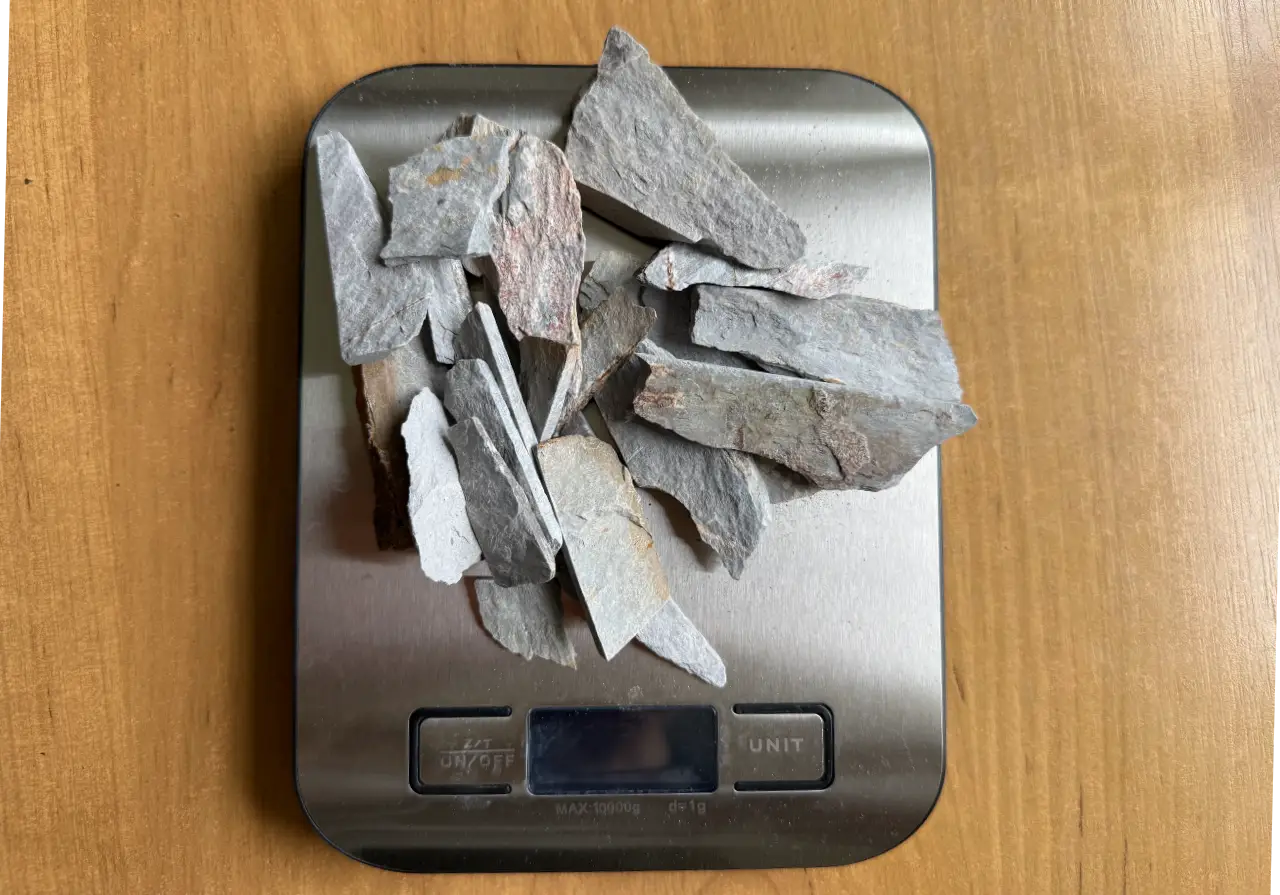
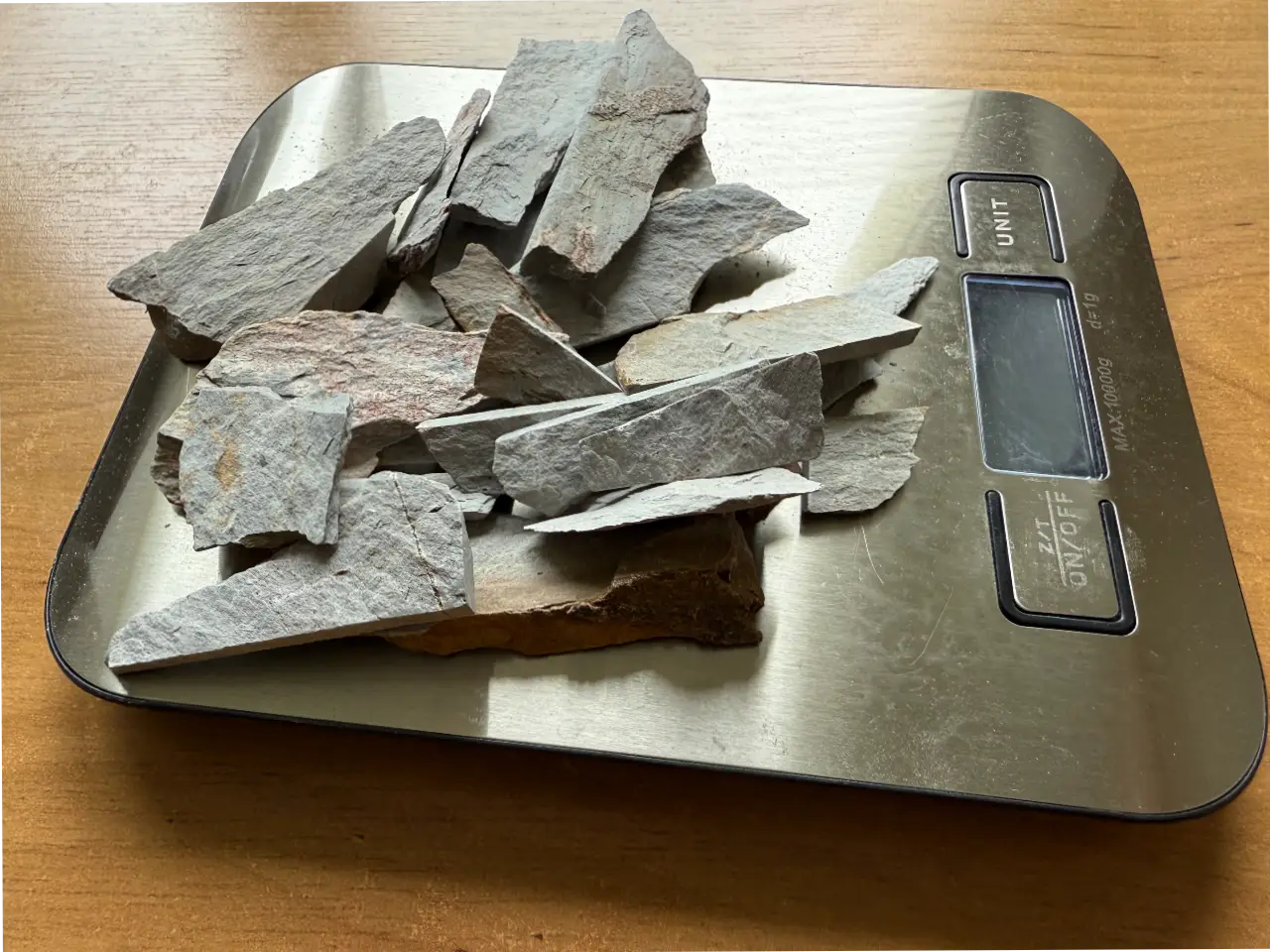
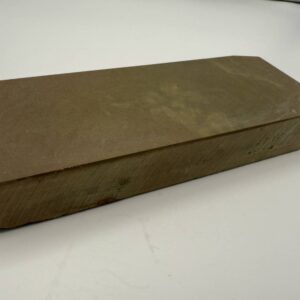

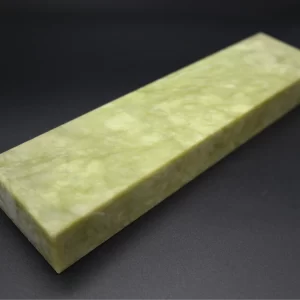
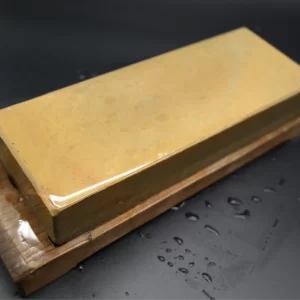
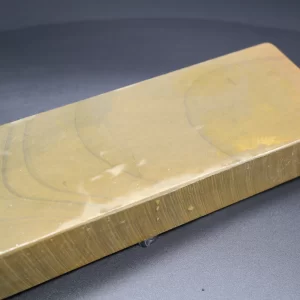
Reviews
There are no reviews yet.